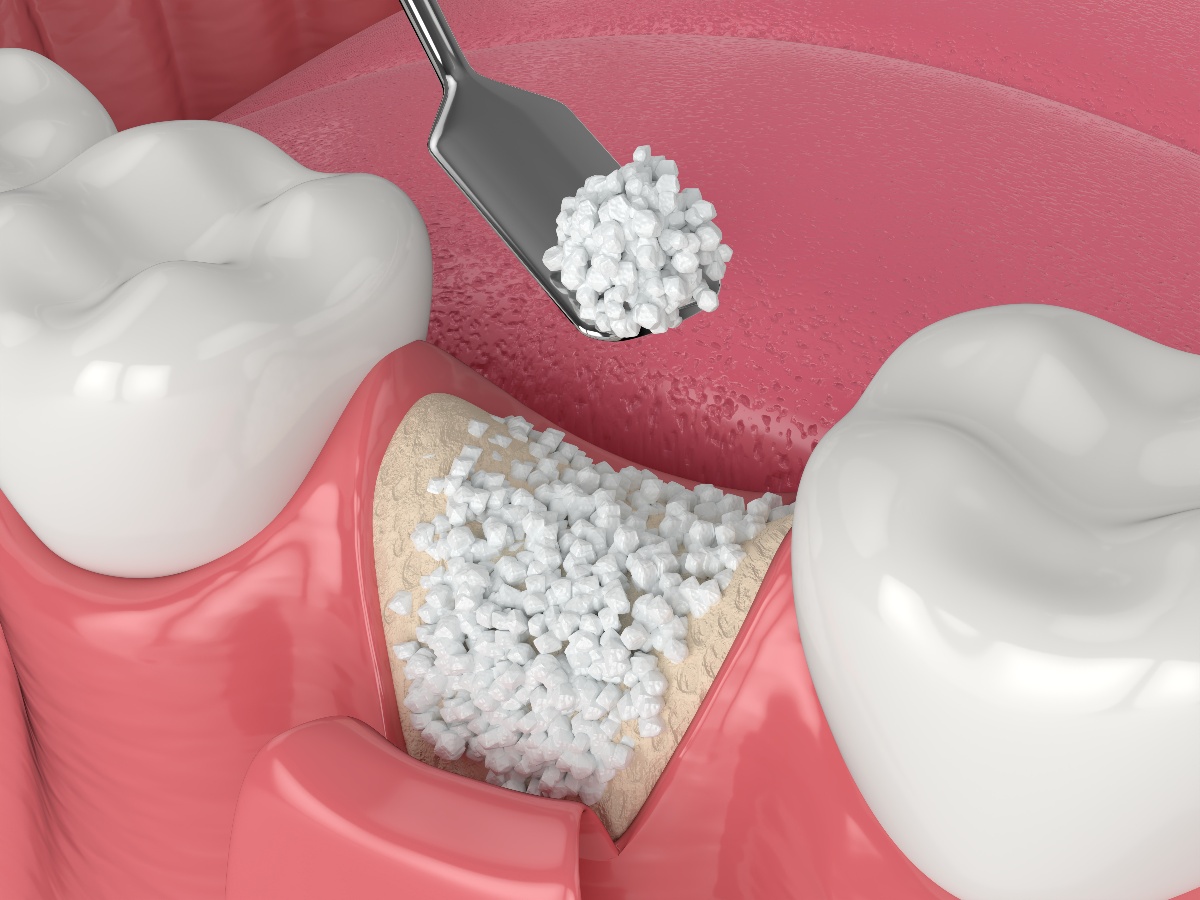According to the Journal of Prosthetic Dentistry, almost 40 million adults in America need dentures. Although this number declines every decade, many people continue to benefit from having dentures that replace all or several missing teeth.
Studies show that most people are pleased with dentures. However, a regular complaint is that dentures have a tendency not to stay in place. Dentists now have a predictable alternative with a high success rate.
Traditional Dentures
In the past, patients missing all or most of their teeth had very limited options to restore their smiles and the ability to chew food and speak without problems. Traditional dentures use artificial teeth placed on an acrylic base. They can come very close to the appearance of natural teeth and gums. These are still widely used with great success, especially for people who are unable to have a surgical procedure due to a medical condition. Dentures are also affordable and easy to maintain.
Although traditional dentures have been effectively used for centuries, they have disadvantages that lead many people to seek other options. These disadvantages include the following:
- Tendency to not fit well over time.
- Difficulty chewing certain foods.
- Formation of mouth sores.
- Inability to prevent bone loss.
- Movement while speaking.
- Need for removal at night for gum and jawbone health.
Overdentures
Traditional dentures rest on the jawbone and gums with no other support. Additionally, to hold them in place, dentures rely solely on the amount and thickness of saliva, the tight fit against the gums, denture adhesives, and how much bone you have remaining.
Overdentures gain additional support and retention from retained natural teeth, roots that have been treated with root canal therapy, or, more commonly, dental implants.
What is an Implant-Supported Denture?
Implant-supported dentures combine two dental prostheses, dentures and implants. Instead of one implant supporting one tooth, an implant-supported complete denture rests on a few–usually four–precisely placed dental implants.
The implant-supported dentures that attach to four dental implants per arch are called All-On-Four dental implants. The four implants are placed in the upper, lower, or both jaws. These serve to anchor the denture to the jawbone. After implant placement, time is allowed for complete healing and fusing of the implants to the surrounding bone, a process known as osseointegration. After healing, the dentures are attached to the implants to replace all missing teeth.
Who is a Good Candidate for an Implant-Supported Denture?
Dental implants have brought significant changes to the method that dentists use to replace missing teeth. As a result, many people who have worn traditional dentures for years have had implants placed to receive the many benefits of implants. Fortunately, most people are excellent candidates for implants. However, in some cases, your dentist may recommend that you pursue another option.
Good candidates for implant-supported dentures, such as All-on-Four, should:
- Be missing all or several teeth.
- Have sufficient jawbone density. You need adequate healthy bone to support and fuse with dental implants. In most cases, All-on-Four can overcome the need for as much bone as traditional implants. Moderate bone loss can be treated with a bone graft to improve the available bone for implant placement. If your bone loss is excessive, your dentist may recommend a traditional implant.
- Have reasonably good health. A minimally invasive surgical procedure is required for implant placement. The following medical conditions can affect successful surgery and healing:
- Uncontrolled diabetes.
- Prior radiation treatment to the head and neck.
- Some thyroid conditions.
- Osteoporosis and bisphosphonates treatment.
- Osteomalacia (Which is caused by vitamin D deficiency).
- Alcohol addiction.
- Not smoke. Despite its many health risks, smoking is prevalent in most cultures. It affects most dental procedures, including dental implants. While your dentist may have a protocol for treating smokers with dental implants, the risk of implant failure remains high for anyone who smokes.
Eight Benefits of Implant-Supported Dentures
Dentures that attach to implants instead of being supported by the jawbone alone provide several benefits to patients compared to traditional dentures. These benefits include:
- Prevention of continual bone loss. Implants do not cause the bone to form where it has been lost. However, implants provide the necessary stimulation to healthy bone to prevent further loss. The process of bone atrophy begins once tooth roots are removed.
- Enhanced stability. Implants overcome the major problem of traditional dentures, instability and shifting. Once the implant fuses with the surrounding bone, it provides stability for the replacement teeth that mimics that of natural tooth structure.
- Restored chewing efficiency. Many denture patients notice a diminished ability to chew certain foods. Implant-supported dentures have been shown to chew foods into smaller particle sizes with fewer chewing movements than traditional dentures.
- No need for adhesives. After the bone shrinks beneath a traditional denture, adhesives are often used to hold the denture in place. This adhesive must be cleaned from the denture every day and reapplied the next day.
- More natural appearance. Traditional dentures depend on the acrylic base resting on your gums. This results in using as much plastic in your mouth as possible for maximum retention. However, this can lead to a more artificial appearance. Because implant-supported dentures are retained primarily by a fixed attachment in bone, less plastic is used, and the appearance is more natural.
- Lasts longer than traditional dentures. The attachments that join the dentures to the implants may need replacing every few years. However, the denture itself can last more than ten or twenty years. This can be a significant advantage over traditional dentures, which may require frequent replacement due to bone loss. Despite more initial expenses for implant-supported dentures, they can be more economical over time.
- More natural feeling. Because of superior esthetics, implant-supported dentures can restore your smile and increase your confidence. Additionally, they feel more natural when functioning during chewing and speaking.
- Make you look and feel younger. Because implant-supported dentures look, feel, and function more naturally, you will likely feel much younger than when you wore traditional dentures. Additionally, you actually will look younger because implant-supported dentures provide support to the muscles of your face due to preserving bone in your jaws. This results in less wrinkling of your face as you age.
Schedule an Appointment
Our team of oral health professionals can help you receive all the benefits of implant-supported dentures if you are missing all or many of your teeth. We begin with a consultation to assess your needs and create a personalized treatment plan. For more information, contact us online or call us.






